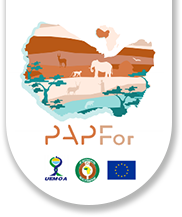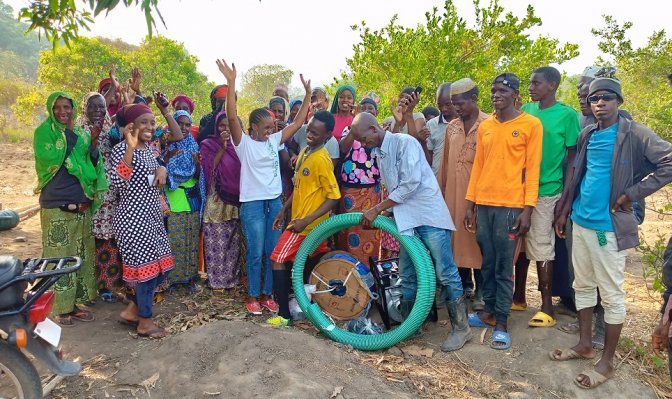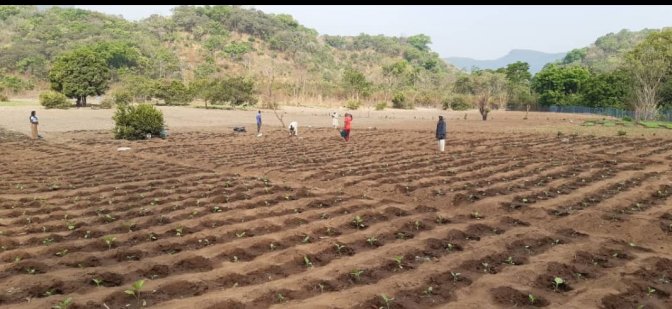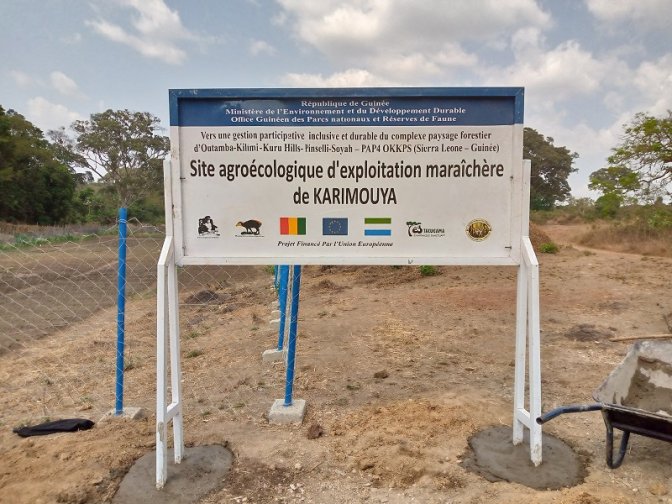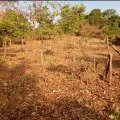Home / News / Support for the creation of farmer-managed natural regeneration (FMNR) (...)
Support for the creation of farmer-managed natural regeneration (FMNR) fields in OKKPS
The development of rural communities is vital to a nation’s environmental, social and economic viability. To support the participatory management of the OKKPS transboundary landscape between Guinea and Sierra Leone financed by the European Union through the PAPFor programme, the Wild Chimpanzee Foundation (WCF) has begun supporting farmers in the future Pinselli-Soyah-Sabouyah National Park to set up Farmer Managed Natural Regeneration (FMNR) fields for the 2023 agricultural season.
FMNR is a low-cost land restoration technique used to combat poverty and hunger among farmers by increasing food production and resilience to climate extremes. In practice, FMNR involves the systematic regrowth and management of trees and shrubs from felled tree stumps, sprouting root systems or seeds. The resprouted trees and shrubs help restore soil structure and fertility, inhibit erosion and soil moisture evaporation, rehabilitate springs and the water table, and increase biodiversity. Some tree species also impart nutrients such as nitrogen into the soil.
In March, WCF introduced FMNR to the communities of Gadha Pinselli, Bokaria, Yali, Safirin, Nèguèya, and Wassou in the sub-prefecture of Ouré Kaba and Madina Oula. Each community has prepared a field of at least one hectare and is on standby to receive crops when the rains return later this year.
The preparation of the fields includes abatis and mulch clearing, selecting trees, shrubs and shoots for natural regeneration, securing the fields against incursions by roaming cattle and cleaning and turning the soil, aimed at transmitting a model of ecological agriculture resilient to climate change.
Furthermore, committing to the sustainable management of natural resources, WCF has provided the market gardening groups of Soyah, Balancia, Kouloundala, Banihoye, and Karimouya with 4 motorised pumps. Each pump has 2 connections measuring 105 metres long. The motorised equipment was acquired with a community contribution of 10 % towards the total cost and aims to facilitate access and sustainable use of water for farming activities.
FMNR should substantially benefit the farmers to enjoy increased and more sustainable yields. And as it contributes to carbon storage both above and belowground, in biomass and organic matter, it also contributes to reducing greenhouse gas emissions.
The growing of trees alongside crops (agroforestry) should further provide multiple benefits to farmers, crops, climate and wildlife.
